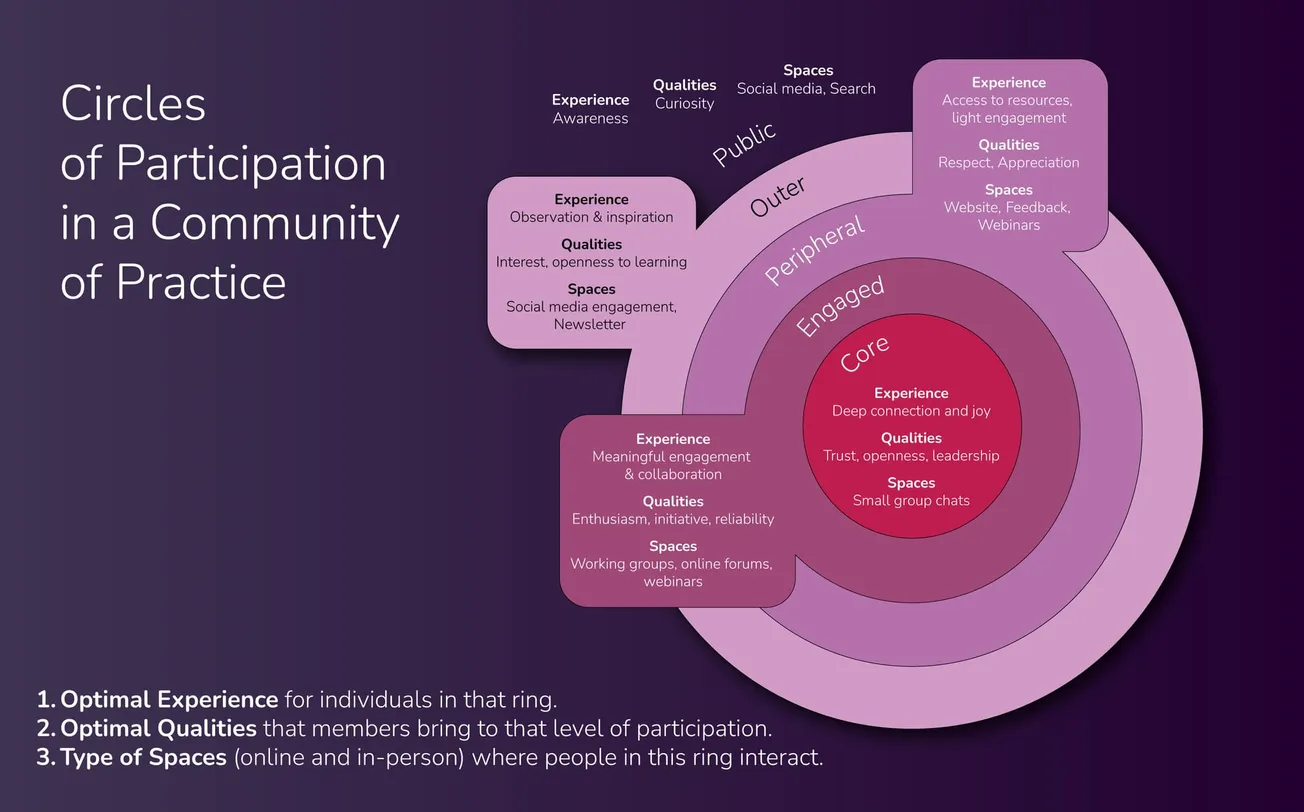Table of Contents
At CanAdapt, we’re intrigued by the concept of “smart groups,” small project teams (or even large online communities) that make better decisions and generate more accurate insights than any individual member does on their own.
Unfortunately, most groups are not smart and have the opposite effect, leading to less intelligent and less effective outcomes. So, how can you tell if your group is helping you level up—or holding you back?
From the latest research in collective intelligence, we compiled this guide to recognizing and nurturing a smart group.
What is Collective Intelligence?
Collective intelligence refers to the shared intelligence that emerges when individuals collaborate effectively. It’s the capacity of a group to think, learn, and act cohesively in a way that produces outcomes superior to what any individual could achieve alone.
Qualities of an Intelligent Group:
An intelligent group:
- Learns and adapts effectively over time.
- Balances diversity and cohesion by incorporating different perspectives while maintaining a shared focus.
- Makes accurate decisions and predictions by leveraging the strengths of its members.
- Generates innovative solutions to complex problems.
- Produces measurable outcomes that exceed the sum of individual contributions.
Qualities of a Less-Intelligent Group:
A less-intelligent group, in contrast:
- Suffers from groupthink, suppressing dissent and alternative ideas.
- Struggles with poor communication and misaligned goals.
- Wastes resources due to inefficiency or inflexible processes.
- Produces mediocre or regressive outcomes that fail to justify the group effort.
A Framework for Evaluating Participation
The following framework helps you assess whether your involvement in a group or initiative creates value for you and the collective effort.
1. Define Metrics for Collective Intelligence
Start by assessing the group’s ability to harness collective intelligence. Key metrics include:
- Diversity of input: Does the group welcome and integrate diverse perspectives and expertise?
- Coordination and synergy: Are members’ efforts aligned and complementary?
- Knowledge aggregation: Is the group effectively pooling and synthesizing individual knowledge?
- Effective communication: Are ideas shared clearly and without friction?
- Innovation: Is the group generating novel solutions or insights?
2. Compare Group Output to Individual Potential
Ask yourself:
- Does the group create something I couldn’t achieve alone?
- Are the results richer, more innovative, or more impactful than what I could produce solo?
- Does the group avoid common pitfalls?
- Does it reduce biases, groupthink, or overconfidence compared to individual decision-making?
If the group consistently adds value beyond what you could accomplish alone, it’s likely worth your time.
3. Assess the Efficiency of the Group Process
Participation in a group should feel like a wise investment of time and effort.
Evaluate:
- Time vs. value: Is the group’s output worth the time and energy spent in meetings, discussions, or contributions?
- Decision-making speed and accuracy: Is the group capable of making timely and well-informed decisions?
4. Align Group Goals with Personal Goals
Participation is most rewarding when group and personal goals align.
Consider:
- Does the group’s mission resonate with my values or long-term objectives?
- Am I gaining skills, knowledge, or connections that benefit me personally?
- Does my role feel meaningful and impactful?
If the group consistently aligns with your goals, it’s more likely to sustain your motivation.
5. Evaluate Collective and Individual Benefits
Weigh the benefits you bring to the group and receive in return:
- Collective benefit: Does your participation significantly amplify the group’s impact? Does the group rely on your unique skills or insights?
- Personal benefit: Are your contributions recognized and valued? Are you gaining valuable returns (knowledge, experience, connections)?
6. Look for Evidence of Improvement
Effective groups learn and adapt over time.
Evaluate whether:
- The group evolves: Does it adjust its approach based on feedback and outcomes?
- The initiative has measurable impact: Is there tangible progress toward its stated goals?
7. Conduct Regular Reviews
Periodic self-assessment ensures your participation remains aligned with your values and goals.
Reflect on questions like:
- Has this group improved my ability to make decisions or take action?
- Is my time here delivering more value than if I worked alone?
- Is the group still making meaningful progress?
If the answers indicate diminishing returns, it may be time to reconsider your role or focus on other opportunities.
A Decision Tree for Group Participation
Here’s a simplified decision tree to guide your evaluation:
- Does the group have a clear purpose and metrics for success?
- If no, raise concerns or consider exiting.
- Is the group leveraging collective intelligence effectively?
- If no, explore ways to improve or reduce involvement.
- Is my participation creating more value than working solo?
- If no, reassess your role or focus on higher-value activities.
- Is the group improving and adapting over time?
- If no, consider whether the group’s structure or mission needs rethinking.
Empowering Collective Action
By regularly assessing group participation with this simple framework, you can ensure your efforts contribute to meaningful collective intelligence. This approach not only enhances the effectiveness of groups but also empowers individuals to align their efforts with high-impact initiatives.
Whether you’re part of a climate adaptation project, a professional network, or a local community group, this framework helps you make informed decisions about your participation, ensuring that you and the group thrive.
Share Your Thoughts
What’s your experience with evaluating group participation? Are there other metrics or strategies you’ve found helpful? Join the conversation on the CanAdapt platform, or share your insights in the comments below.





